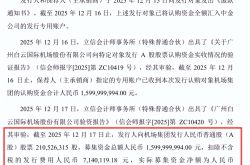Thalys: Hidden Worries Under Huawei's Glow
![]() 09/19 2024
09/19 2024
![]() 509
509
Recently, Thalys (601127.SH) has sparked heated market discussions due to a series of major operations. According to the announced notice, Thalys plans to acquire 100% of the equity of Chongqing Liangjiang New Area Longsheng New Energy Technology Co., Ltd. (hereinafter referred to as "Longsheng New Energy") by issuing shares, with a transaction consideration of 8.164 billion yuan. Additionally, Thalys intends to increase its capital in its subsidiary Thalys Automobile Co., Ltd. (hereinafter referred to as "Thalys Automobile") by 5 billion yuan.
Stockstar observes that since the second half of the year, Thalys has frequently made significant moves, investing over 10 billion yuan to deepen its ties and integration with Huawei. The reason behind this is that Thalys achieved a remarkable turnaround from losses to profits through its cooperation with Huawei. However, beneath this success lies hidden concerns as Thalys heavily relies on Huawei in product design, channels, and marketing. As more and more companies join Huawei's "circle of friends," Thalys may face fiercer competition. Despite these concerns, Thalys cannot afford to detach itself from Huawei's capital, and its own brand fails to shoulder the responsibility of driving sales. For Thalys, a deep integration with Huawei is perhaps the best choice at present.
01. Risk of Asset Mortgages in the Target Company
According to the Asset Purchase Report (Draft) disclosed on September 13, Thalys plans to acquire 100% of the equity of Longsheng New Energy held by three investment platforms under Chongqing State-owned Assets Management Commission—Chongqing Industry Mother Fund, Liangjiang Investment Group, and Liangjiang Industry Group—by issuing shares, with a transaction consideration of 8.164 billion yuan.
After this transaction, Chongqing Industry Mother Fund, Liangjiang Investment Group, and Liangjiang Industry Group will hold 3.24%, 1.98%, and 2.31% equity in Thalys, respectively, ranking as the fourth to sixth largest shareholders. Chongqing State-owned Assets Management Commission will also become a significant investor in Thalys.
Founded in September 2022, Longsheng New Energy is the implementing entity for the infrastructure supporting project of the Smart Connected and New Energy Vehicle Industrial Park in Liangjiang New Area Longxing New City. As a project company specifically established to serve the production and manufacturing of new energy vehicles, its primary assets include land, real estate, infrastructure, and related supporting facilities required for the production of new energy vehicles. These assets have contributed to the establishment of a Smart Electric Vehicle Factory (hereinafter referred to as the "Super Factory").
Thalys states that upon completion of the transaction, Longsheng New Energy will become a wholly-owned subsidiary of Thalys, granting Thalys ownership of the Super Factory. This will ensure the safety, stability, autonomy, and controllability of Thalys' production end, enhancing the integrity and control of Thalys' critical business assets.
Currently, Thalys Automobile is a client of Longsheng New Energy, leasing the Super Factory for the production of AITO series products. In 2023, Longsheng New Energy began generating rental income from the Super Factory, but it has yet to achieve profitability. The announcement reveals that its revenue for 2023 and the first half of this year was 91.0857 million yuan and 86.3492 million yuan, respectively, with net profits of -13.4753 million yuan and -87.5005 million yuan.

Apart from insufficient self-sufficiency, Longsheng New Energy also faces the risk of asset mortgages. According to the Syndicated Loan Mortgage Contract signed between Longsheng New Energy and various banks, one land use right and its above-ground buildings owned by the target company must serve as collateral for the syndicated loan. As of the date of the report's issuance, the land use right owned by Longsheng New Energy has been registered as collateral, and the 30 property rights with issued property ownership certificates are undergoing mortgage registration procedures. The loan amount is 4.4 billion yuan, with a loan term of 23 years.
Stockstar notes that Longsheng New Energy has a significant scale of asset investment. As of the first half of the year, its construction in progress balance was 454 million yuan, fixed assets balance was 986 million yuan, and investment property balance was 4.636 billion yuan. Thalys candidly admits that if significant adverse changes occur in the industry or market environment in the future, and new energy vehicle orders fall short of expectations after the transaction, the increased depreciation and amortization of the target company and the existing depreciation and amortization of the listed company will adversely impact the listed company's operating performance.
02. Frequent Major Investments
On the same day Thalys announced its acquisition, it also officially announced plans to increase its capital in Thalys Automobile.
The announcement reveals that Thalys intends to invest 5 billion yuan of its own funds into Thalys Automobile. Upon completion of the capital increase, Thalys Automobile's registered capital will be 9.96 billion yuan, remaining a wholly-owned subsidiary of Thalys.
It is understood that Thalys Automobile is Thalys' core subsidiary, focusing on the research and development, production, and sales of new energy vehicles and their components. Its primary products include the AITO M9, M7, and M5 series models.
Stockstar observes that Thalys has been active in recent months, with all its moves related to Huawei. On August 8, Thalys resolved to acquire a 19.355% equity stake in Thalys Automobile from Chongqing Jinxin Equity Investment Fund Partnership (Limited Partnership), with a corresponding acquisition price of approximately 1.329 billion yuan. The industrial and commercial registration change procedures were completed on August 13. Through this acquisition, Thalys achieved 100% control of Thalys Automobile.
On July 2, Thalys Automobile planned to use self-raised funds to acquire the AITO trademark for a transaction value of 2.5 billion yuan. On August 23, Thalys Automobile intended to invest 11.5 billion yuan in Shenzhen Yinwang Intelligent Technology Co., Ltd., acquiring a 10% stake, marking Thalys' and Huawei's escalation to a comprehensive cooperation model of "business + equity."
Behind these series of moves lies Thalys' benefit from its cooperation with Huawei. After four consecutive years of losses totaling nearly 10 billion yuan, Thalys finally achieved profitability this year. In the first half, Thalys generated revenue of 65.044 billion yuan, a year-on-year increase of 489.58%; net profit attributable to shareholders was 1.625 billion yuan, a year-on-year increase of 220.85%, achieving profitability and exceeding the doubling plan.
A rough estimate suggests that these investments total approximately 28.493 billion yuan. Notably, the acquisition of Longsheng New Energy was conducted through equity swaps, differing from other investment methods and requiring no cash flow, thereby reducing Thalys' asset-liability ratio to a certain extent. However, since partnering with Huawei in 2019, Thalys' asset-liability ratio has remained high, at 78.61%, 75.86%, 79.16%, and 85.95% from 2020 to 2023, respectively. In the first half of this year, the asset-liability ratio climbed to 89.02%, far exceeding that of still-loss-making new forces such as NIO Inc. (09866.HK) and XPeng Inc. (09868.HK). Meanwhile, while Thalys holds monetary funds of 42.612 billion yuan, its notes payable and accounts payable amount to a staggering 59.355 billion yuan.

03. Hidden Worries Behind the Comeback
From the frequent acquisitions, it can be seen that Thalys is gradually consolidating AITO's resources under its control. Although both parties continue to deepen their ties, Thalys also faces internal and external challenges.
The deep cooperation with Huawei has earned Thalys the label of an "OEM factory." Huawei holds the initiative in its partnership with Thalys, and Thalys relies on Huawei's technology in product design and manufacturing. Meanwhile, Huawei boasts extensive sales channels and robust marketing capabilities, providing sales and promotion support for Thalys' automotive products through its offline stores and online platforms, further illustrating Thalys' dependence on Huawei.
In terms of sales, AITO accounts for the vast majority of Thalys' sales. From January to August this year, Thalys' new energy vehicle production and sales volume reached 283,900 and 279,300 units, respectively, representing year-on-year increases of 378.79% and 381.75%. Among them, Thalys Automobile's production and sales volume were 261,700 and 257,100 units, respectively, up 681.99% and 673% year-on-year, accounting for over 90% of the total. According to the HarmonyOS Intelligent Driving official account, AITO's cumulative deliveries exceeded 250,000 units from January to August this year.
On the other hand, while Thalys' comeback is attributed to Huawei, its biggest risk lies in losing Huawei's exclusive favor. As Huawei's HarmonyOS Intelligent Driving "circle of friends" continues to expand, brand plans for AITO, Zhide, Xiangjie, and Zunjie are gradually taking shape. Chery Automobile, Beijing Automotive Group BluePark New Energy Technology Co., Ltd. (600733.SH), and JAC Motor (600418.SH) have successively joined Huawei's "Intelligent Selection" model, with Zhide S7, Zhide R7, and Xiangjie S9 also making their debuts. Although each brand targets different markets, the entry of other automakers is bound to divert Huawei's resources.
Looking at the broader automotive market, Thalys faces formidable competitors. NIO Inc. (02015.HK) and AITO have engaged in a neck-and-neck race in sales. After overtaking NIO in the first three months of this year, AITO was subsequently surpassed by NIO. Additionally, Zeekr (ZK.N) and NIO Inc. are actively expanding their market shares. Data shows that AITO M9 and the new AITO M7 sold 15,386 and 10,261 units in August, respectively, both experiencing month-on-month declines.
Stockstar notes that outside of AITO, Thalys' own brands have not made significant waves. Thalys also boasts brands such as BluePower Automobiles, Ruichi New Energy, Dongfeng Fengguang, and Dongfeng Xiaokang, covering new energy SUVs, new energy minivans, fuel SUVs, and fuel MPVs.
Among them, BluePower Automobiles is a new new-energy vehicle brand launched in March last year. Its first model, the plug-in hybrid SUV BluePower E5, is priced between 99,800 and 119,800 yuan. However, BluePower Automobiles' sales performance is unimpressive. According to third-party platforms, its monthly sales since launch have peaked at less than 5,300 units, with cumulative sales of approximately 19,000 units this year, falling short of AITO's monthly sales. (This article was originally published on Stockstar by Lu Wenyan)





